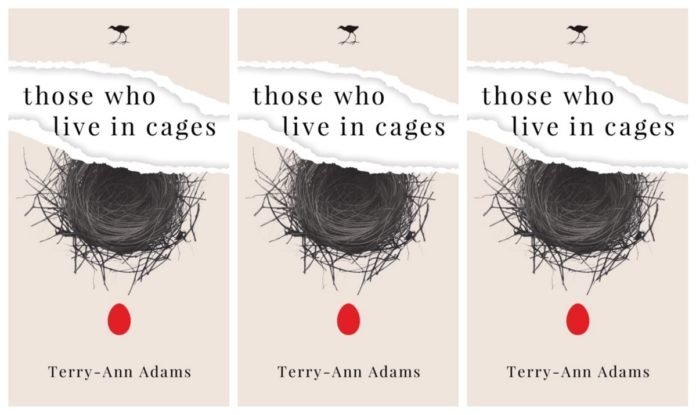Terry-Ann Adams is the author of the soon-to-be released book, Those Who Live in Cages. The book, set in Eldorado Park, is centered around five Coloured women struggling to survive. We spoke to Adams about her book and inspirations.
Growing up in Eldorado Park with her grandparents, Adams said she started writing little poems when she was six. Her grandfather had already taught her to read and write by the age of four. “I was trying to come to terms with being a coloured child with albinism in a working-class family,” she said. As a child with albinism, Adams said she couldn’t go outside much. The library was the place where she lived and could explore different worlds. “But I was never in South Africa. I was never in Eldos. I was never with a person with albinism,” she said.
She wrote a mini memoir for a school assignment detailing how difficult it was for her to get into mainstream school because of her albinism.
This is her first novel
From poetry to short stories, Adams has tried many different writing forms but this is her first novel. She said she never thought she’d be able to write such a long piece of work. “I would go onto Google and ask how many words constitute a novel and then give myself a word goal,” Adams said laughing. In university she studied English and Afrikaans literature but even that would have never prepare her for the process of actually writing a full-length novel.
Through the Afrikaans literature course, Adams said: “It was the first time I realised that I could write in my own language and the language that we speak at home. I can actually have the guts to put all of that down on a piece of paper,” she said. She was introduced to writers and poets writing in Coloured Afrikaans. This allowed her to start using that dialect in her work.
Inspired by monologues
While playing around with poetry, Adams started toying with the idea of monologues. She’d craft one sided conversations and eventually put together a collection of these one way conversations about a teenage girl who is pregnant and people’s opinions about her falling pregnant. It was this writing style that inspired her book. In Those Who Live in Cages, Kaylynn, Bertha, Janice, Laverne and Raquel are the five women trying to navigate living in Eldorado Park, affectionately known as Eldos by its people. The book is set out in the form of phone calls, diary entries, poems and other forms of reported speech.
Adams said there is very little dialogue in the book: “I wanted to experiment with the idea of only knowing one side of the story. Then the reader must fill in the rest of the gaps,” she said.
The patriarchy is an important theme in her book, especially as the women try to navigate it. Adams said she wanted to try removing men from the story. They don’t have a voice. The male characters are spoken about.
Decision to write the book using diary entries
Adams has a long interest in soliloquies and people’s thoughts. “I grew up in a society where what was said about you is taken as law,” she said. She said in Eldorado Park there would be stories going around about you that you wouldn’t even know about. She wanted to explore a story told only from the perspective of one character without the “noise of narrations”. Bridget Jones Diary and The secret diary of Adrian Mole are two book series that Adams refers to as inspiration for this style.
Writing your own truth
There has been a huge push internationally and within South Africa around the idea of OwnVoices. It’s the idea that stories about marginalised people should be written by authors of the same identity group.Those Who Live in Cages would definitely be classified as an #ownvoices book. Adams said growing up she could never find any literature about albinism written by people by albinism. “I felt so alone – like my condition is being explained to me by people who don’t even live what I’m going through,” she said. Adams said her first introduction to Afrikaans literature was at university – and white people were mostly the writers. That’s something she doesn’t want for her nieces and nephews.
“If we are not even an extra on a TV set – if there’s not even a person with albinism popping up at Oppiekoffie just to have a drink. It means that people with albinism or coloured people don’t belong in this world,” she said. That’s why representation matters.
The meaning of Eldos
“It’s my home,” said Adams. She said she might have moved out from the area as a teenager. But those formative years spent in Eldorado Park were fundamental. Adams said Eldorado Park isn’t just a place of home – it’s “where I came to be, where I became and where I unbecame”. Her roots are deep in the area and she included both the good and bad into the book. “Sometimes we don’t want to admit we live in labour camps. We don’t want to admit that systemic oppression is wearing us down and that we shouldn’t be living like this,” she said.
Published by Jacana Media, the book will be available later in October 2020.









